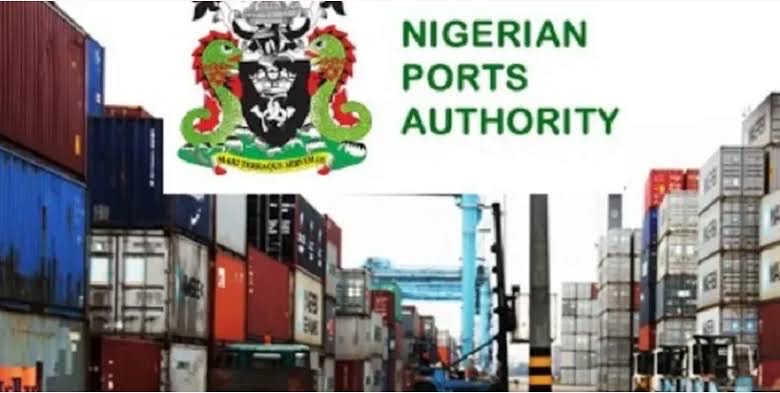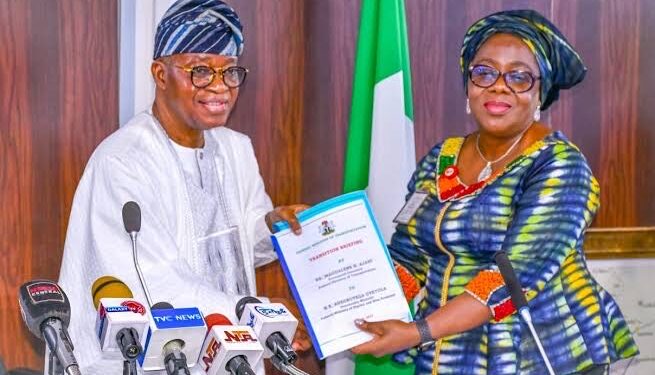The Nigerian Customs Service (NCS) is ensuring that ports will operate around the clock to reduce barriers to import and export trade in Africa’s most populous country.
By operating around the clock, ports will avoid delays and costs associated with not being able to clear cargo on weekends and holidays.
Speaking at the Maritime Conference themed “Nigeria Maritime: Unleashing the Potential and Overcoming Challenges” in Lagos on Thursday, Managing Director of the Nigerian Ports Authority (NPA), Mohammed Bello Koko, said the management of the Nigerian Customs Service has agreed to enable 24-hour port operations and have personnel work in shifts to ensure shippers receive their cargo without delay.
According to Bello Koko, the Inspector General of Customs will work with the NPA to ensure that all non-tariff barriers to trade relating to customs clearance procedures are removed. He said the NPA was also working to improve lighting and security at the port to remove physical barriers that hinder night-time operations for port users and service providers.

“The Ministry of Maritime Affairs and Blue Economy has also commenced discussions with terminal operators to arrange for procurement of new scanners for cargo inspection at ports and Customs will reimburse them through the Comprehensive Import Surveillance System (CISS),” he said.
Bello-Koko said Nigeria needs to rehabilitate and expand berths at Apapa and Tin Can Island ports to accommodate larger vessels so shippers can benefit from economies of scale.
Bello-Koko pointed to the existence of multiple government agencies as one of the challenges, saying government agencies need to streamline the sector to eliminate and reduce costs and delays for shippers.
On Nigeria’s ambitious plans to bring its maritime sector to the global level, Minister of Maritime Affairs and Blue Economy Adegboyega Oyetola said the Federal Government is working on developing a dynamic national policy framework for maritime and blue economy, which should be in place by the end of 2024.
Oyetola stressed the vital role of the sector in economic diversification and sustainable development, saying efforts were being made to propel Nigeria into the top tier of the Presidential Enabling Business Environment Council (PEBEC).
The ministry said it was prioritizing strategic reforms to boost operational efficiency and attract investment, such as the introduction of a National Single Window and Port Community system to automate port processes.
“These measures are aimed at improving Nigeria’s ease of doing business ranking and creating an enabling environment for trade and investment. The importance of Public-Private Partnerships (PPPs) in port modernization, dredging of ports, and deployment of cutting-edge maritime technology cannot be overemphasized,” the minister said.

Chief Operating Officer of Lekki Port LFTZ Enterprise Limited, Lawrence Smith, said Nigeria’s export and import trends remain unbalanced and have not changed in the last 12 years. He said Nigeria’s exports in the last 12 years have been around 1.5 to 1.8 million TEUs, very low compared to the UK, with a population of just 60 million, which recorded exports of around 20 million TEUs.
He said Africa’s most populous country has yet to harness its human capital potential to expand export trade. If successful, this will create jobs, income, and prosperity for its people.
“We are committed to a thriving economy and a thriving export business,” Smith said.
“Nigeria is struggling to diversify its economy by promoting export-oriented industries such as manufacturing, agriculture, and mining. This has limited the country’s ability to earn revenue from exports,” he said.
Earlier, Aminu Umar, president of the Nigerian Chamber of Shipping, in his keynote address, called on the Federal Government to address issues that limit the growth of Nigeria’s blue economy.
He said the Dangote refinery has completely changed the dynamics of Nigerian shipping as unlike before when only imported cargoes were flowing into Nigeria, cargoes are now being delivered from Nigeria to other countries.
“Nigerian cargoes are now being delivered to other African countries, including Senegal. Right now, we are seeing cargo being delivered outside Nigeria.
We have ships that deliver from outside Nigeria to Ghana, Republic of Guinea, and Senegal,” Umar said. He said Nigeria has the potential and opportunity to be a major exporter of fertilizer, gas, and food. “The potential is in dry cargo transportation.
Fertilizer and agricultural produce from Nigeria is also being transported through container ships,” he added.


































